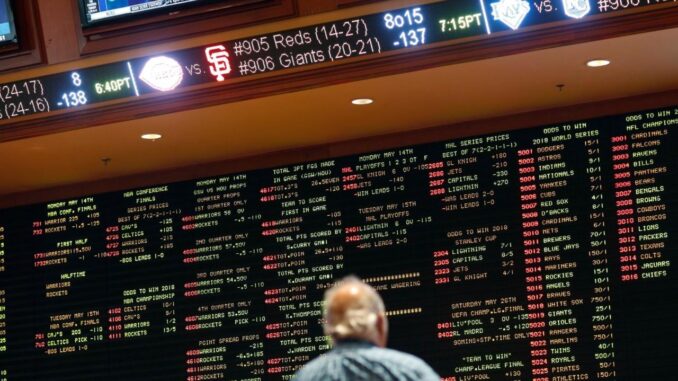
While most states of the Union have a clear line for all types of betting and gambling, the legal gambling age in Oregon depends on what you want to play. While teens are more than welcome at the race tracks and can buy lottery tickets, they can’t enter a casino or bet on sports.
This creates a slight disparity and an issue for local legislators, as the Beaver State also bans all forms of online casinos. Such a solution creates an opening not only for illegal gambling but underage illegal gambling as well.
Currently, there are three types of entertainment that you need to be 21 years old or older to partake in:
- Casinos
- Sports betting (both terrestrial and online)
- Poker rooms
Both online poker and online casinos, in general, are illegal in Oregon, leaving Oregonians to look for operators outside of the state. The practical inability of the legislator to prevent such a practice via a ban means that the State will lose tax income until the ban is lifted.
Progressive in the Past, Outdated Now
In the past, during the days of the Wild West, Oregon was known for its liberal laws about gambling. It was a tough land meant for tough people and throwing a couple of cards was one of the few ways someone could relax.
Now, it is a bit different. As shown by a list from legalgamblingage.com, the Oregon gambling age is quite high, and other restrictions on gambling exist as well.
Additionally, there isn’t such a political push to change the current legislation and push the age limit. It seems that the older Oregonians are generally against it, while the younger population doesn’t care enough for terrestrial gambling to make a difference.
Casino Age Limit
All of the casinos in Oregon are operated inside Native American tribal lands. There are a total of nine tribes located in Oregon and they have been operating casinos since 1988.
To enter such a casino you need to be at least 21 years of age. Because of this, all of the establishments serve alcohol as it is also the legal drinking age across the US.
Although some large casino operators, such as Las Vegas Sands, have tried to lobby the State legislation to open the possibility for commercial casinos outside of the tribal lands, these requests resonated with neither the legislators nor the public.
Online Sports Betting
Online sports betting is one of the most problematic issues inside the State as it is legal for persons over 21, unlike other forms of online gambling that are banned. As many global operators have both options on their apps and websites, this creates an issue with who can enter and who can’t.
Operators can offer sports betting for Oregonians the same way as anywhere else. But, if the operator also offers things like live casino games it won’t be accessible from the local IP address.
Bingo and the Lottery
All adults in Oregon are allowed to purchase any type of lottery or bingo ticket, both online and through sellers across the state. As this isn’t seen as addictive gambling, neither the legislators nor the public have anything against it.
The low age requirements don’t seem to lower the age of the winners in the state as the last major winner from Oregon was a US Air Force veteran, Mr. William Bowker, at his youthful age of 94.
Daily Fantasy Sports
Unlike bingo and lotto which are mostly the focus of our eldest compatriots, Daily Fantasy Sports or DFS is played a lot by the younger population. Even though you need to be 21 for sports betting in Oregon, you can play DFS if older than 18.
For this reason, it is not uncommon to find persons under the age of 21 in sports bars in the State. They can order a soda (or pop, if you are beyond Baker City) and watch how their favorite players are performing.
For most locals, this type of entertainment is more akin to video game loot-boxes and can’t really be legislated against to be banned under the age of 21.
Illegal Online Gambling
Finally, the most troublesome fact about gambling regulation in Oregon is the fact that there is an outright ban for any type of online casino gambling for all Oregonians. This is an incredibly hard thing to prevent by legislation and a number of locals have reported playing through a VPN or in other ways.
And, while there are no outcries from the public about the liberal argument that people should be allowed to entertain themselves, there are arguments about the state losing money because of players virtually going out of state to play.
With states like New Jersey collecting over $300M in tax revenue in 2020 through online gambling, legislators are looking into it as a way to possibly subsidize administrative and local spending.



